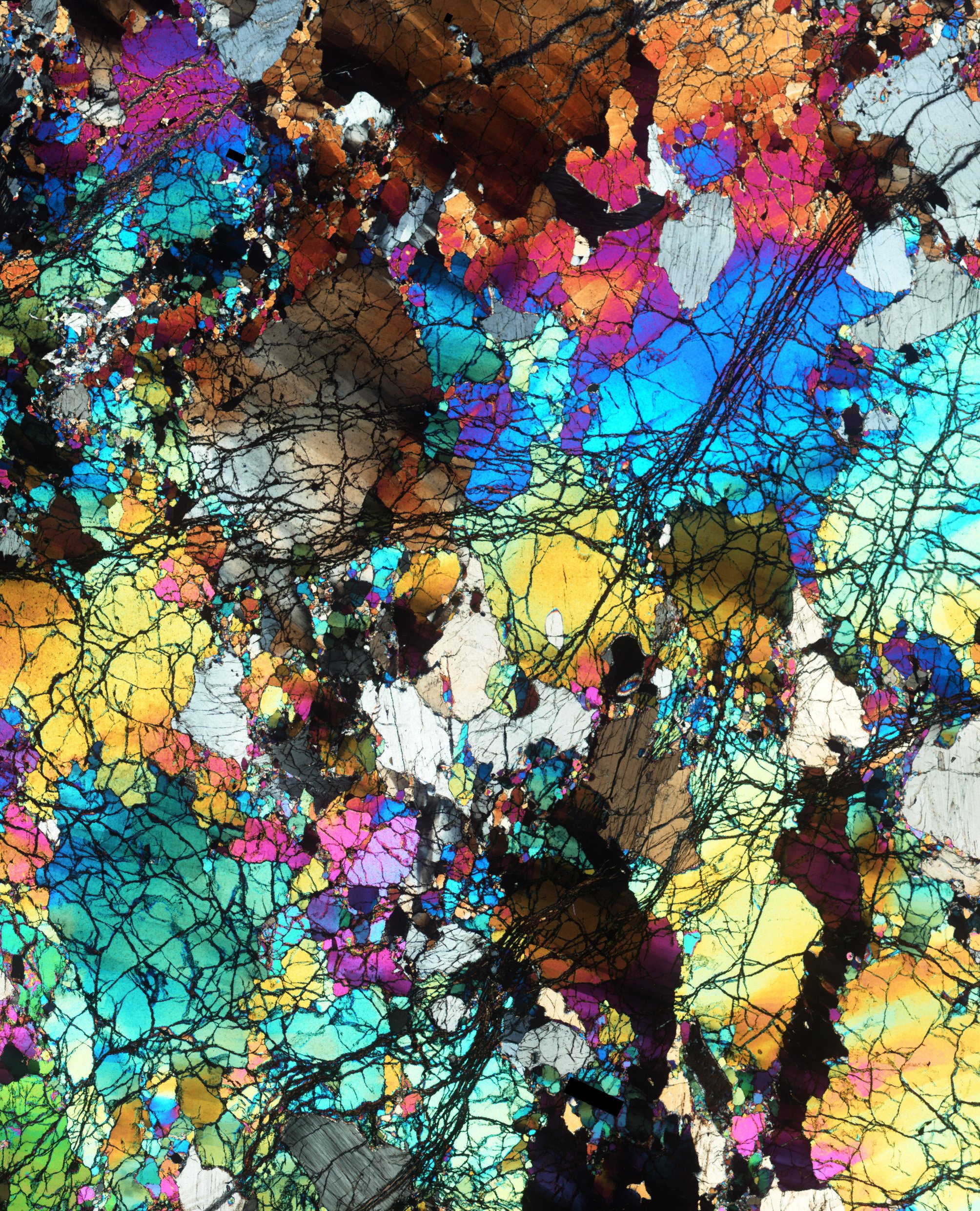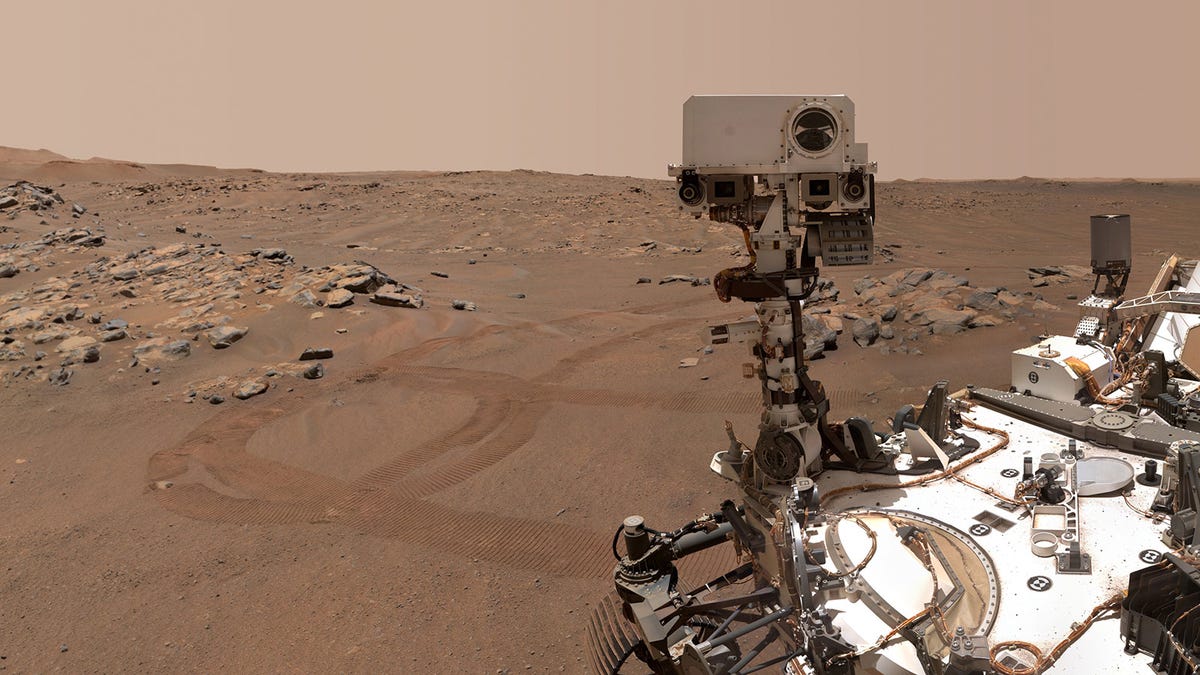
Menggunakan mikrofon, laser, dan beberapa matematika inovatif, tim ilmuwan telah mengukur kecepatan suara di Mars, dalam penemuan ilmiah pertama dan penemuan luar biasa lainnya yang dimungkinkan oleh penjelajah Perseverance NASA.
Ada banyak hal yang disukai tentang misi ketekunan, tetapi salah satu aspek favorit saya dari rover adalah ia dapat merekam audio. Awal tahun lalu, untuk pertama kalinya, kami benar-benar dapat mendengar suara di Mars, baik yang alami maupun buatan. menggunakan file SuperCam .Mikrofonkeliling terdaftar Angin Mars bertiup, klik Dari laser yang memindai batu, dan suara penggilingan yang dibuat oleh roda pemintalnya.
Mikrofon ketekunan yang akan mendeteksi suara-suara ini tidak pasti, Melihat atmosfer tipis yang menyakitkan di planet merah. Suara membutuhkan media untuk merambat, dan Mars memiliki tekanan atmosfer yang kecil sebesar 0,095 pon per inci persegi (psi) Di permukaan tanah, tidak banyak yang bisa dikerjakan. Sebagai perbandingan, tekanan atmosfer di permukaan laut Bumi adalah sekitar 14,7 psi.
Tapi mereka ada di sanaKebisingan yang tidak terlalu mencolok Diambil oleh mikrofon Percy di kawah Jezero. Dengan suara yang terdengar jelas di Mars, Baptiste Shane dari Los Alamos National Laboratory di Los Angeles dan teman sebaya dia Mampu mengukur kecepatan suara di Mars. Para ilmuwan baru-baru ini memperkenalkan temuan Dalam Konferensi Ilmu Planet dan Bulan ke-53yang diadakan dari 7-11 Maret di Texas.
Itu sebuah tim bangau Eksperimen Ketekunan SuperCam, yang meledakkan batu dengan laser untuk mempelajari geologi Mars dan Hal ini terletak di kepala tiang probe 6,9 kaki (2,1 m) di atas permukaan Mars. Tim melakukan pengukuran dari 150 tembakan laser yang diambil di lima lokasi berbeda, sambil juga melacak kondisi cuaca setempat.
G/O Media mungkin mendapatkan komisi

Up to $1,500 off
Samsung Neo QLED TV 4K (2021)
Quantum Matrix Technology
Experience this brilliantly intense picture powered by a vast array of tiny light cells using exclusive Mini LED designed technology for hyper-focused brightness and dimming in all the right areas.
By measuring the time it took the staccato-like clicking sounds to reach the SuperCam microphone, they were able to establish the speed of sound on Mars, to a precision of plus-minus 0.51%. They found that sound on Mars travels at 787 feet per second (240 meters per second), which is significantly slower than the sound of speed on Earth at 1,115 feet per second (340 m/s).
And in an observation that matched prior predictions, the speed of sounds below 240 hertz fell to 754 feet per second (230 m/s). That doesn’t happen on Earth, as sounds within the audible bandwidth (20 Hz to 20 kHz) travel at a constant speed. The “Mars idiosyncrasy,” as the scientists call it, has to do with the “unique properties of the carbon dioxide molecules at low pressure,” which makes the Martian atmosphere the only one in the solar system to experience “a change in speed of sound right in the middle of the audible bandwidth,” as the scientists wrote. The reason for this is that sounds above 240 Hz don’t have time to relax their energy, according to the scientists.
The scientists go on to say that this acoustic effect “may induce a unique listening experience on Mars with an early arrival of high-pitched sounds compared to bass.”
Unique is right! Lots of acoustic information exists below 240 Hz, including the low end of music and the lowermost registers of the human voice (typically for males). Music on Mars would sound completely messed up (particularly with increased distance), with the middle and high frequencies reaching the listener slightly before the low frequency sounds, such as the lower registers of the bass guitar and kick drum. Add another effect of carbon dioxide, the attenuating, or dampening, of higher frequencies, and the acoustic experience gets even weirder.
As a neat aside, the technique used to measure the speed of sound can also be used to measure the local temperature. So in addition to Percy’s Analis dinamika lingkungan Mars (MEDA), tim memiliki termometer baru. Ke depan, Chide dan rekan-rekannya akan melakukan lebih banyak tes untuk mengukur kecepatan suara pada waktu yang berbeda dalam sehari dan selama musim Mars yang berbeda.

“Gamer yang sangat menawan. Ahli web. Sarjana TV. Pecandu makanan. Ninja media sosial yang rajin. Pelopor musik hardcore.”






More Stories
Sebuah studi baru menantang teori oksidasi mantel
Generasi Milenial dan Generasi X menghadapi risiko lebih tinggi terkena 17 jenis kanker ini dibandingkan generasi baby boomer: ScienceAlert
Sebuah pencapaian penting bagi NASA dalam menemukan exoplanet